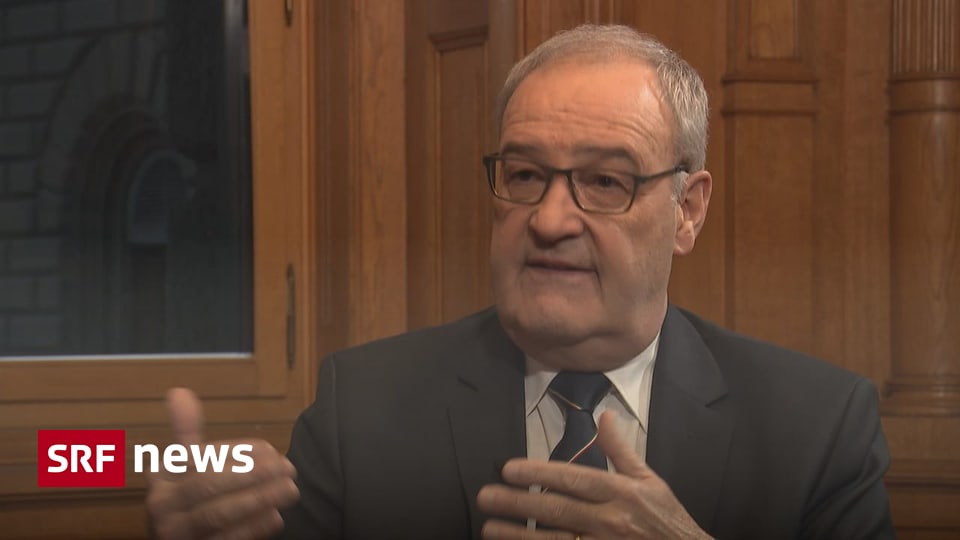Contents
Economics Minister Guy Parmelin on the current strength of the franc, wages and the free trade agreement with China.
Geopolitical tensions, strong franc, economic weakness in Europe: a cold wind is blowing against the Swiss economy at the beginning of 2024. Economics Minister Guy Parmelin says in Eco Talk that he is nevertheless optimistic.
Open the people box. Close the people box
Guy Parmelin has been a Federal Councilor since 2016. The SVP politician was elected to the government in 2015 as the successor to the resigned Eveline Widmer-Schlumpf (BDP). Parmelin has been head of the Federal Department of Economics, Education and Research since 2019. He was born in 1959 and worked as a master farmer and winemaker until his election to the Federal Council. In 2003 he was elected to the National Council for the canton of Vaud.
You can now hear the complaints again: The Swiss franc has appreciated in the last year. Will 2024 be extremely tough for the export economy?
This probably won’t be easy. But you shouldn’t forget: In other countries they have higher inflation. You have to see all parameters and framework conditions. In general, the economic situation in the world is difficult. We are an export country and that brings challenges.
You can already see that the first industrial companies are introducing short-time work again. Should we expect that short-time work will increase significantly this year?
All forecasts so far have shown that the resilience of our economy is very high. I want to remain cautious, but with a bit of optimism. But of course the international situation is a huge challenge for Switzerland.
Issue of wages and inflation. We had three years in which wages rose less than inflation, i.e. a loss in real wages. This year, 2024, wages will rise at about the same rate as inflation. Do we have a purchasing power problem in Switzerland?
When inflation was negative, wages also rose in real terms. The social partners have now carried out wage negotiations. I’ve heard that the unions are happy in certain areas this year. They say they have achieved their goals. That is a good thing.
All forecasts so far have shown that the resilience of our economy is very high.
But of course there is a problem. But if we compare ourselves internationally, we have to see that what is happening in other countries is much worse.
But now we have an interesting situation: everyone is moaning about the lack of skilled workers. More and more baby boomers are retiring, and yet wages are not rising that much. Why is that?
The problem of a shortage of skilled workers in general exists throughout Europe, including in the USA. The Federal Council can try to improve the framework conditions. But here wages are part of the solution.
If companies want to present themselves as attractive, perhaps part of the solution is to say: Yes, we have good working conditions and we can pay a little better. It should not be forgotten that we are in competition with other countries at the international level.
Keyword China. It was exactly ten years ago that Switzerland said with great pride: We now have a free trade agreement with China, unlike other European countries. It has been said again and again that there is an update to this agreement. Why doesn’t this exist?
Since 2016, we have been trying with China to identify the areas where we need to make this update. Of course we have to agree. And until now that hasn’t been possible.
Now, at the end of this exploratory phase, the signs are good, including in the areas of the environment, sustainability and so on, which are sensitive. China seems ready to move forward. If that is true, we can soon end this phase and work on a negotiating mandate.
Are you now optimistic that this could happen?
Moderately optimistic.
The interview was conducted by Reto Lipp.
